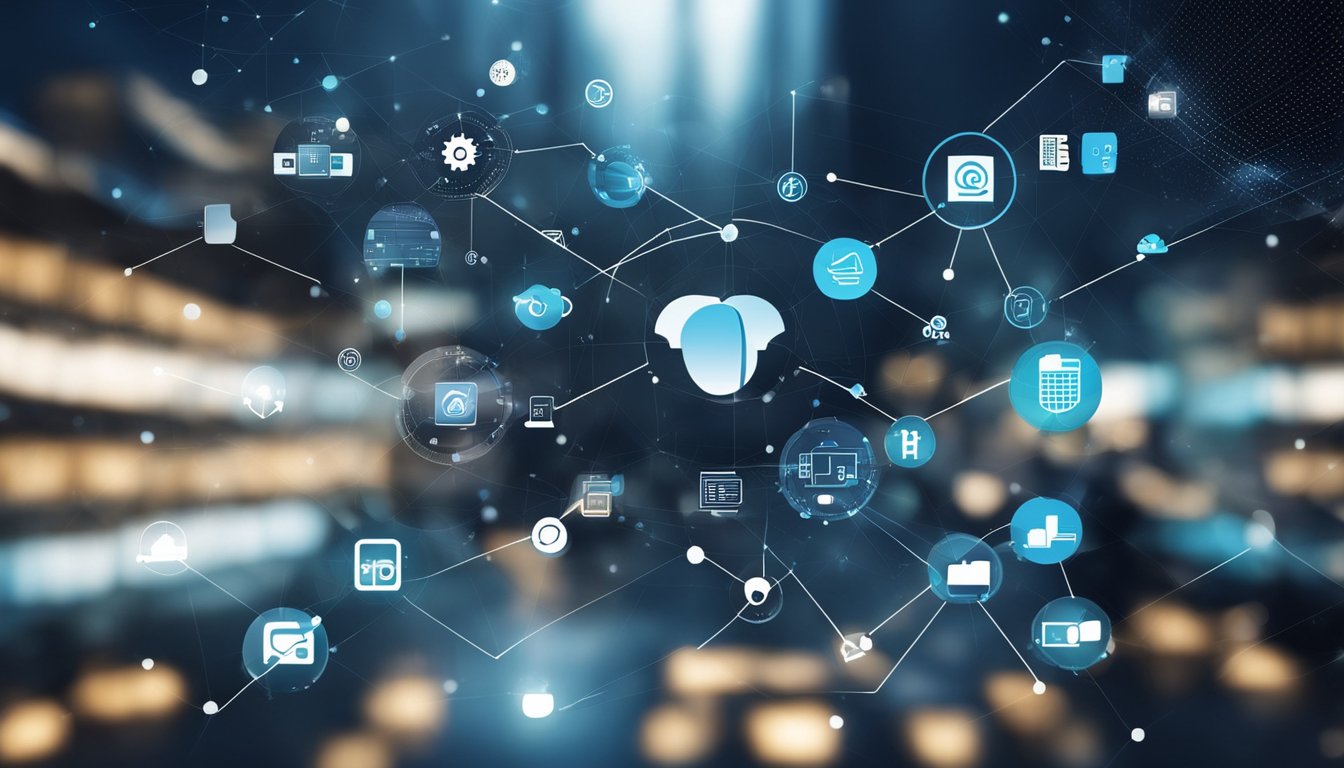
Impact of Internet of Things on Businesses A Comprehensive Analysis
The Internet of Things (IoT) has become a buzzword in the business world, and for a good reason. IoT is transforming the way businesses operate, and its impact is expected to continue to grow in the coming years. As of 2023, IoT is already making a s
The Internet of Things (IoT) has become a buzzword in the business world, and for a good reason. IoT is transforming the way businesses operate, and its impact is expected to continue to grow in the coming years. As of 2023, IoT is already making a significant impact on businesses, from streamlining operations to creating new revenue streams.

IoT refers to the interconnection of devices, sensors, and machines that collect and share data over the internet. This technology has the potential to revolutionize the way businesses operate, by providing real-time data and insights that can help companies make better decisions. With IoT, businesses can automate processes, reduce costs, and improve efficiency, all while enhancing the customer experience.
As businesses continue to adopt IoT, its impact will be felt across various industries, from healthcare to manufacturing to retail. In this article, I will explore the impact of IoT on businesses, how it is transforming operations, and the technological advancements supporting its growth.
Understanding the Internet of Things (IoT)
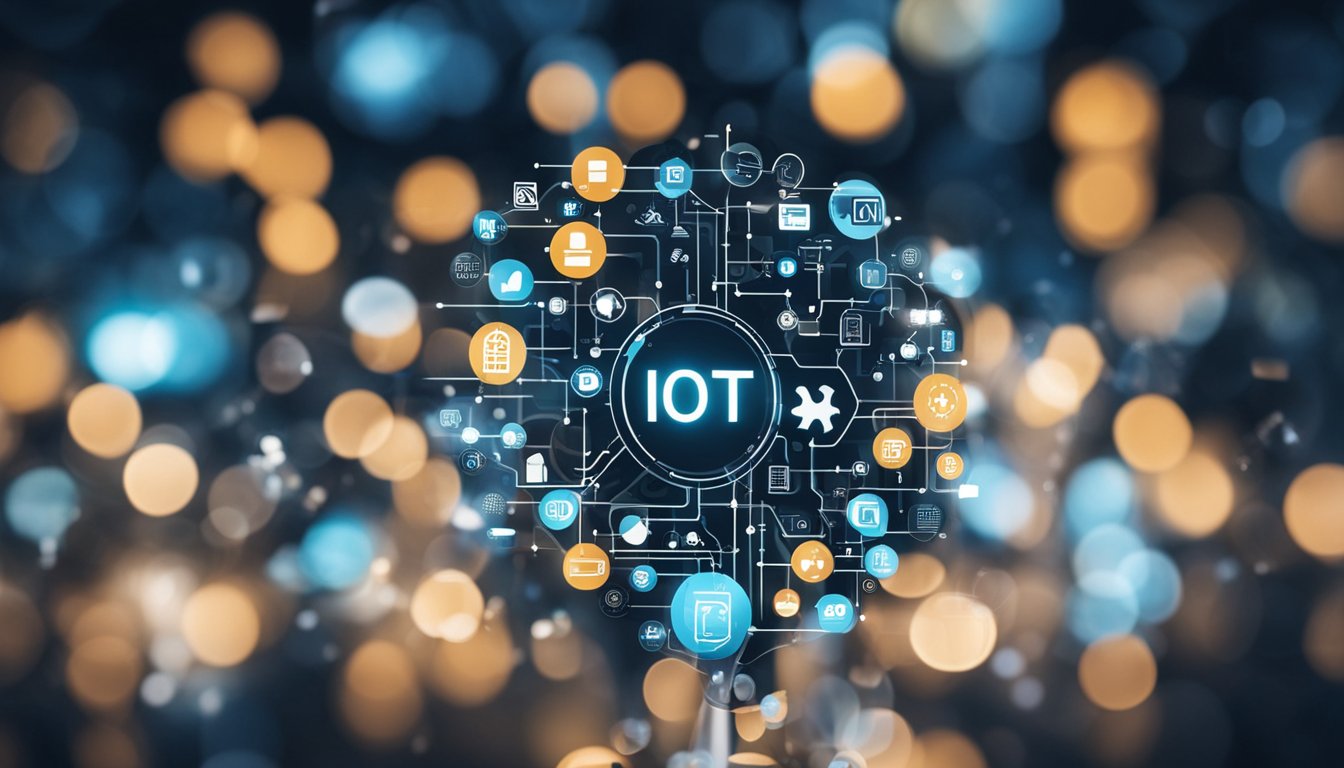
As a technology that has been around for a while, the Internet of Things (IoT) is a network of connected devices that can communicate with each other over the internet. IoT devices are embedded with sensors, software, and other technologies that enable them to collect and exchange data.
The internet is the backbone of IoT, connecting devices and systems to create a seamless network. IoT devices can range from smart home appliances to industrial machinery and even vehicles. These devices are designed to connect to the internet and each other, enabling them to share data and communicate with other devices and systems.
IoT systems are made up of several components, including sensors, gateways, and cloud platforms. Sensors are used to collect data from the environment, while gateways act as a bridge between the sensors and the cloud platform. The cloud platform is where the data is stored and analyzed.
One of the key benefits of IoT is the ability to connect and automate devices, which can lead to increased efficiency and productivity. For example, IoT sensors can be used to monitor equipment performance and detect or even resolve potential issues before they cause downtime, reducing maintenance costs and improving uptime.
Another benefit of IoT is the ability to collect and analyze data in real-time, providing insights that can be used to optimize processes and improve decision-making. For instance, RFID tags can be used to track inventory in real-time, enabling businesses to manage their supply chains more effectively.
Overall, IoT has the potential to transform the way businesses operate. By connecting devices and systems, businesses can increase efficiency, reduce costs, and improve decision-making. However, it is important to consider the security and privacy implications of IoT, as connected devices can be vulnerable to cyber attacks.
Impact of IoT on Business Operations
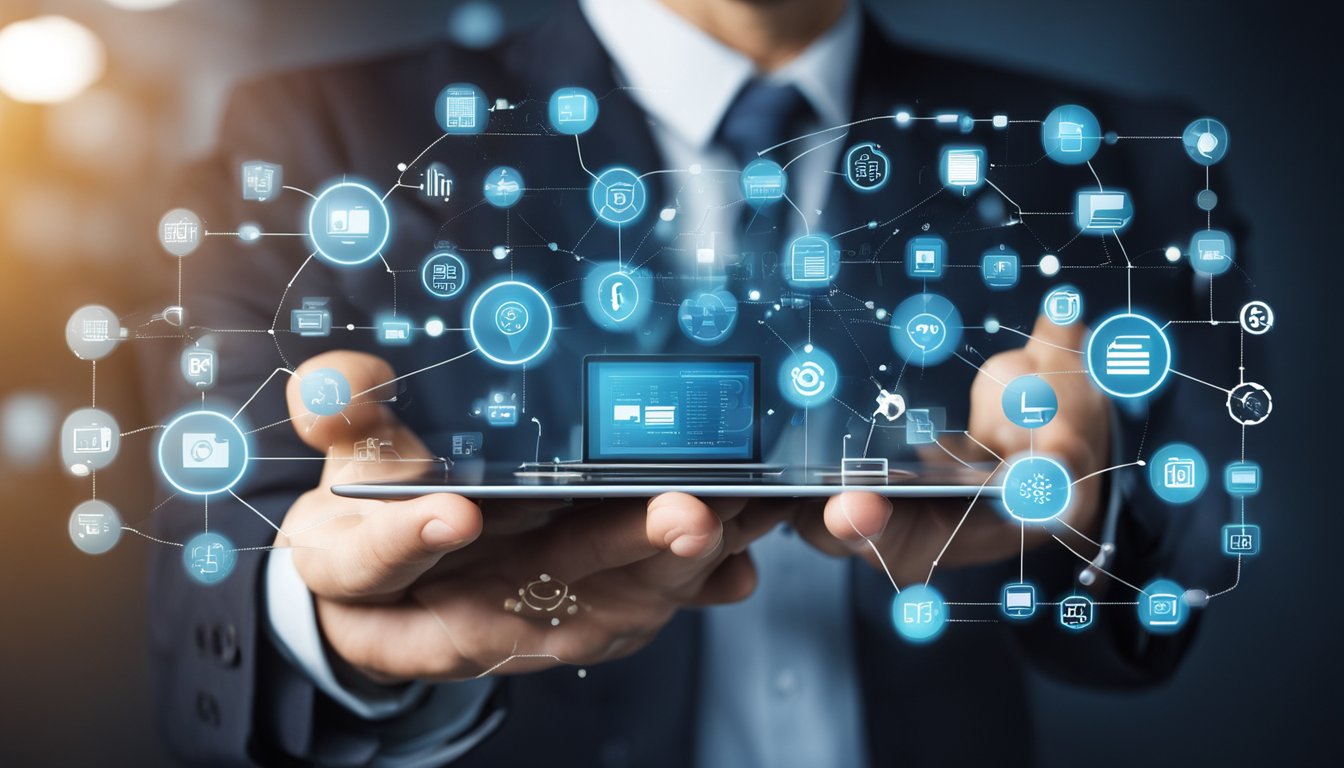
As IoT continues to evolve, it has become a game-changer for businesses in terms of efficiency, productivity enhancement, security and risk management, and new business opportunities. In this section, I will discuss how IoT has impacted business operations in these areas.
Efficiency and Productivity Enhancement
IoT has enabled businesses to optimize their operational efficiency by automating their processes and workflows. With IoT sensors and devices, businesses can monitor their systems, inventory, and equipment in real-time, reducing human intervention and increasing productivity. For instance, preventive maintenance can be carried out before equipment fails, reducing downtime and maintenance costs.
Moreover, IoT has enabled businesses to streamline their logistics and supply chain management. IoT sensors can monitor the location and condition of goods in transit, alerting businesses to potential delays or issues that could impact delivery times. This level of monitoring allows businesses to make more informed decisions, reducing waste and improving efficiencies.
Security and Risk Management
IoT has also enhanced security and risk management for businesses. With IoT sensors and software, businesses can monitor their systems, alerting them to potential cyber threats or other security breaches. This level of monitoring enables businesses to respond quickly to potential threats, minimizing the risk of data loss or other security issues.
Moreover, IoT has enabled businesses to improve their risk management by providing real-time monitoring of their systems and equipment. This level of monitoring allows businesses to identify potential issues before they become problems, reducing downtime and maintenance costs.
New Business Opportunities
IoT has also opened up new business opportunities for organizations. With IoT, businesses can transform their processes and workflows, creating new business models and revenue streams. For instance, IoT sensors can provide businesses with new insights into customer behavior, enabling them to develop new products and services that meet customer needs.
Furthermore, IoT has enabled businesses to collaborate more effectively, reducing costs and improving efficiencies. With IoT, businesses can share data and insights in real-time, enabling them to make more informed decisions and respond quickly to changing market conditions.
In conclusion, IoT has had a significant impact on business operations, enabling businesses to improve their efficiency, productivity, security, and risk management. Moreover, IoT has opened up new business opportunities, transforming the way businesses operate and creating new revenue streams. As such, businesses that embrace IoT are likely to enjoy significant benefits in terms of cost savings, revenue growth, and operational efficiency.
IoT in Different Industries
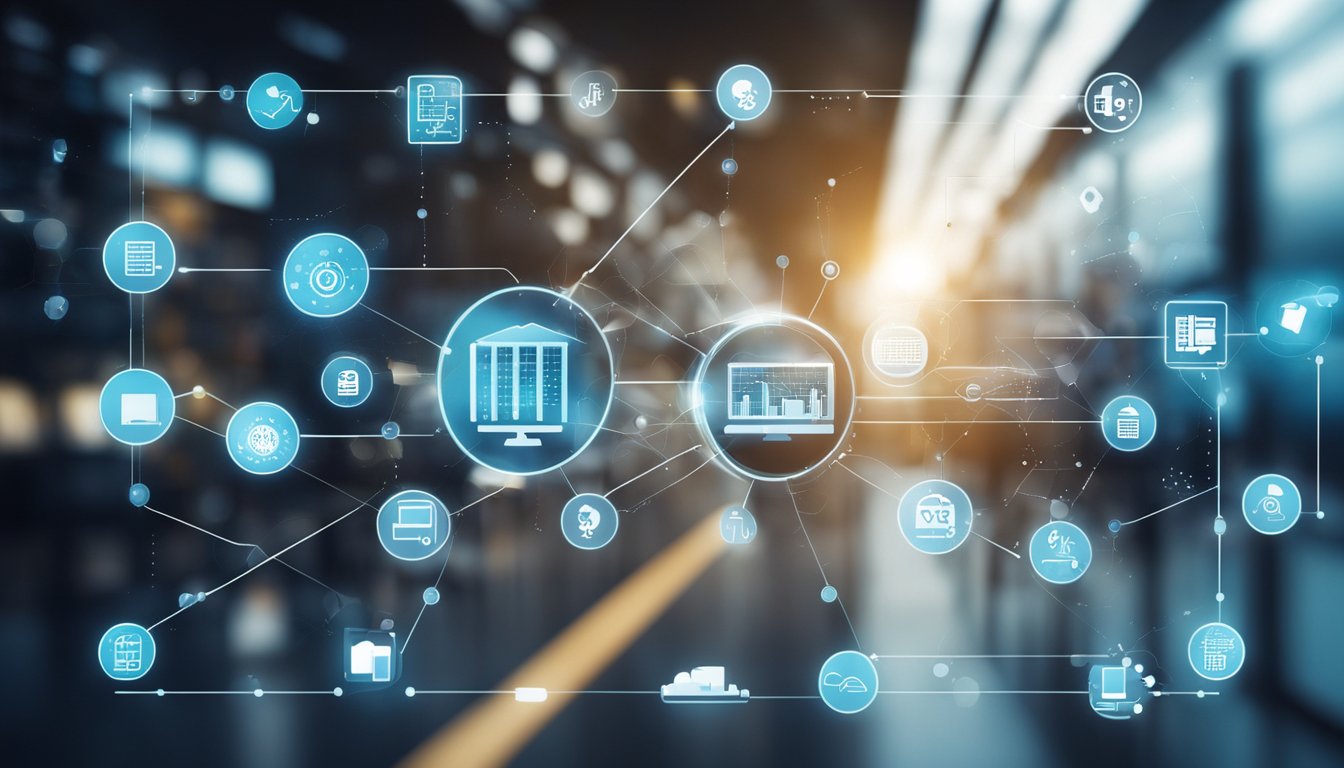
As IoT technology continues to evolve, it is having a significant impact on various industries, including healthcare, manufacturing, and retail.
Healthcare
IoT is revolutionizing the healthcare industry by providing real-time data and insights that can be used to improve patient care. IoT devices such as wearables, sensors, and medical equipment can collect and transmit data to healthcare providers, allowing them to monitor patient health remotely. This technology is particularly useful for patients with chronic conditions who need continuous monitoring.
In addition to remote monitoring, IoT is also being used to improve patient safety by tracking medication usage and ensuring that patients receive the correct dosage at the right time. IoT devices can also be used to track patient movements and prevent falls, which is especially important for elderly patients.
Manufacturing
IoT is transforming the manufacturing industry by optimizing production processes and improving supply chain management. IoT sensors can be used to monitor machinery and equipment, providing real-time data on performance and maintenance needs. This data can be used to predict when maintenance is needed, reducing downtime and increasing efficiency.
IoT is also being used to improve supply chain management by providing real-time data on inventory levels, shipping times, and delivery schedules. This data can be used to optimize the supply chain, reducing costs and improving customer satisfaction.
Retail
IoT is changing the way retailers interact with consumers by providing real-time data on consumer behavior and preferences. IoT devices such as beacons and sensors can be used to track consumer movements and collect data on shopping habits. This data can be used to personalize the shopping experience, providing consumers with targeted promotions and recommendations.
IoT is also being used to optimize inventory management by providing real-time data on inventory levels and product demand. This data can be used to ensure that products are stocked when they are needed, reducing waste and increasing efficiency.
Overall, IoT is having a significant impact on various industries, providing real-time data and insights that can be used to improve efficiency, reduce costs, and enhance the customer experience. As IoT technology continues to evolve, we can expect to see even more innovative applications in industries such as industrial IoT, vehicles, cities, mining, survey, utilities, and assembly line.
Technological Advancements Supporting IoT
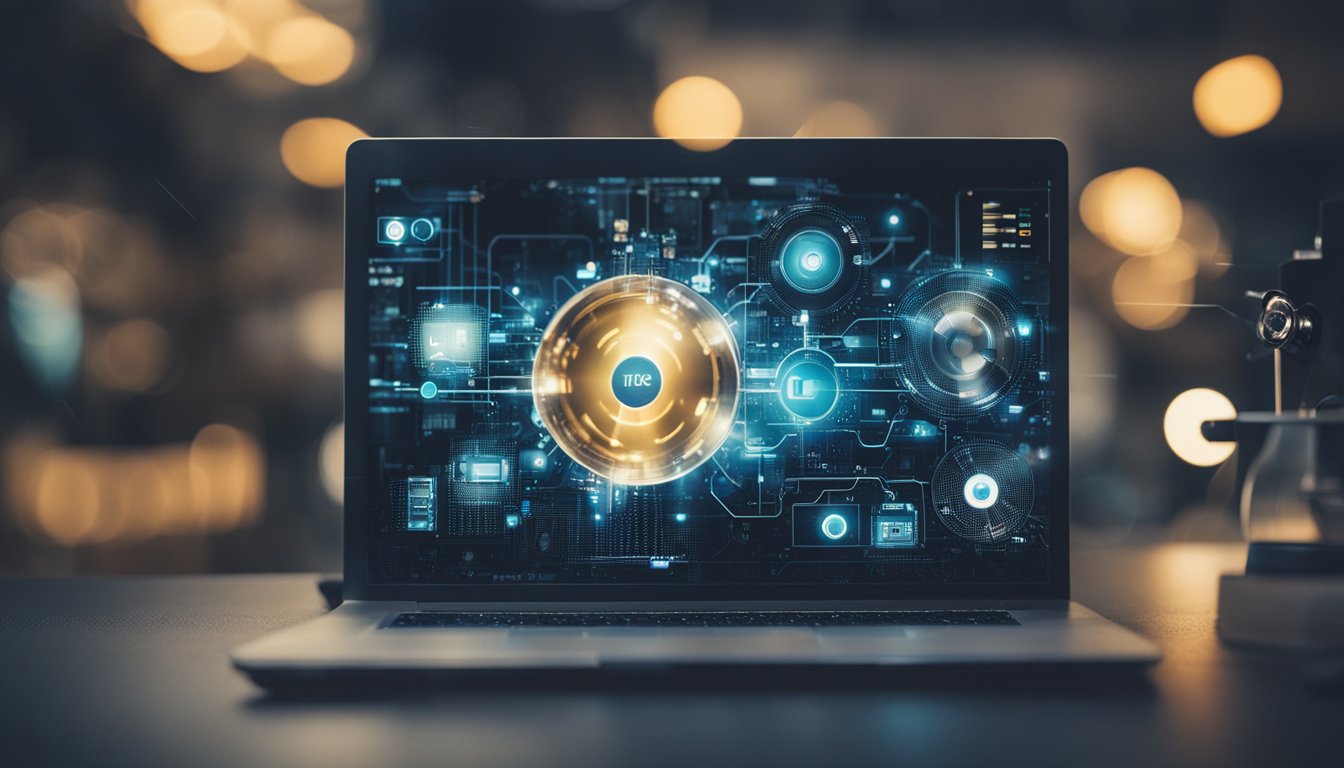
As the Internet of Things (IoT) continues to evolve, there are several technological advancements that are supporting its growth. Some of the most significant advancements include Artificial Intelligence (AI) and Machine Learning, as well as Connectivity Technologies.
Artificial Intelligence and Machine Learning
AI and Machine Learning are playing a crucial role in the development of IoT. AI algorithms can analyze vast amounts of data generated by IoT devices, making it possible to identify patterns and insights that would be difficult or impossible for humans to detect. This data analysis can help businesses make more informed decisions and improve their operations.
Machine Learning is also being used to improve IoT devices themselves. By analyzing data from sensors and other sources, Machine Learning algorithms can learn how devices behave under different conditions, allowing them to optimize their performance and reduce energy consumption.
Connectivity Technologies
Connectivity technologies are another critical component of IoT. These technologies enable IoT devices to communicate with each other and with the cloud, allowing for real-time information sharing and processing.
One of the most significant connectivity technologies is 5G, which offers faster speeds and lower latency than previous generations of wireless technology. This makes it possible to transmit large amounts of data quickly and reliably, which is essential for many IoT use cases.
Other connectivity technologies, such as LoRa and Wi-Fi, are also important for IoT. These technologies provide different levels of bandwidth and range, making them suitable for different types of devices and use cases.
Overall, these technological advancements are helping to drive the growth of IoT and are enabling businesses to take advantage of the economic benefits that come with it. As more advanced technologies continue to emerge, we can expect to see even more real-world examples of IoT in action, from robots and drones to fitness trackers and air quality sensors. However, it's important to remember that as IoT becomes more prevalent, organizations must also be aware of the vulnerabilities and security risks that come with it and take steps to protect themselves and their customers.
Frequently Asked Questions
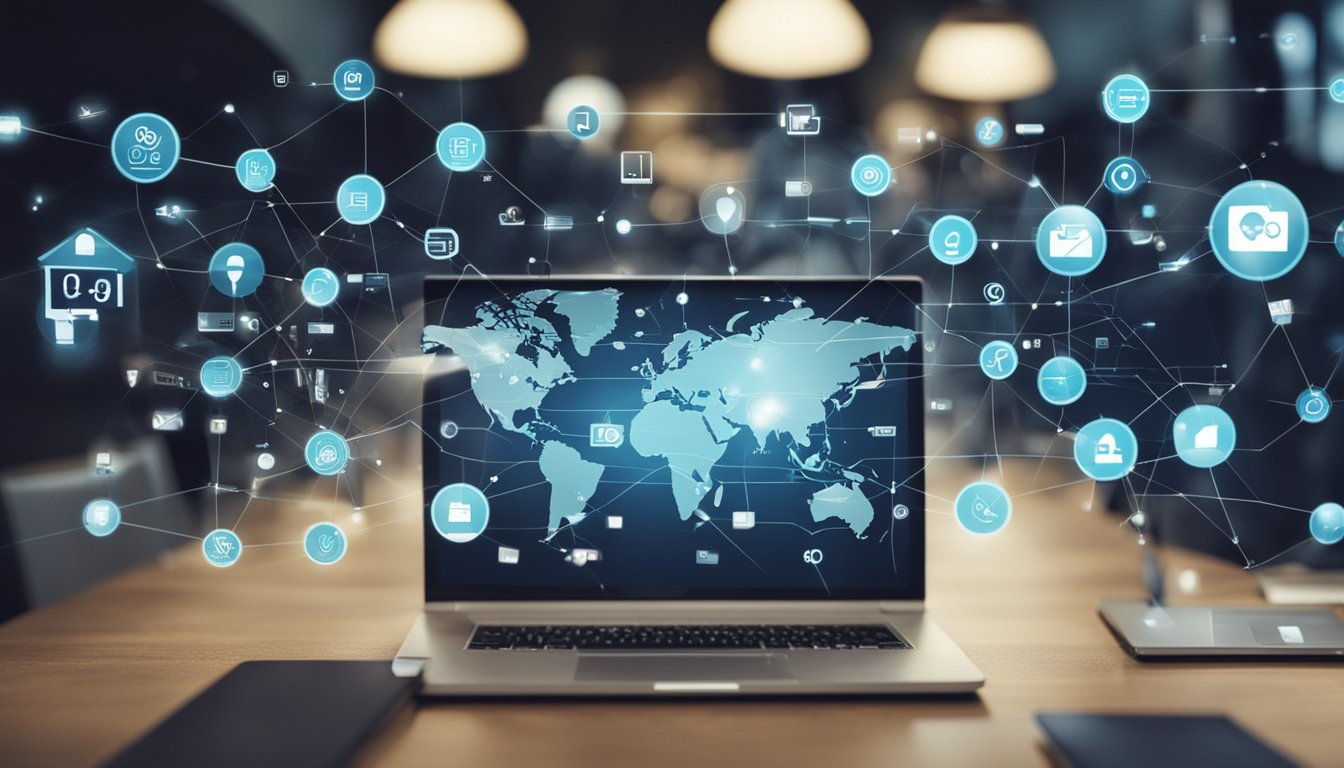
What are some examples of how IoT has positively impacted businesses?
IoT has positively impacted businesses in various ways. For instance, it has enhanced supply chain management, improved asset tracking, and optimized inventory management. IoT has also enabled businesses to collect and analyze data, which has helped them make informed decisions. By using IoT in their operations, businesses have been able to achieve greater efficiency, productivity, and profitability.
What are some potential risks associated with the Internet of Things in the business world?
While IoT has many benefits, it also poses some risks to businesses. One of the main risks is the potential for cybersecurity breaches. IoT devices can be vulnerable to hacking, which can lead to data breaches and other security issues. Another risk is the potential for technical glitches, which can lead to system failures and other operational problems. Additionally, IoT can raise privacy concerns, as it involves collecting and analyzing large amounts of data.
How has the digital divide impacted businesses and their ability to utilize IoT?
The digital divide refers to the gap between those who have access to technology and those who do not. This divide has impacted businesses in various ways. For instance, businesses that lack access to high-speed internet may not be able to fully utilize IoT. Similarly, businesses that lack the necessary resources to invest in IoT may be at a disadvantage compared to their competitors.
What are three ways that businesses can use IoT in the workplace?
Businesses can use IoT in various ways to enhance their operations. Three ways include:
- Monitoring and optimizing energy usage
- Tracking and managing inventory
- Enhancing workplace safety and security
What are some economic benefits of implementing IoT in businesses?
Implementing IoT can have several economic benefits for businesses. For instance, it can increase efficiency and productivity, which can lead to cost savings. IoT can also enable businesses to collect and analyze data, which can help them make informed decisions and identify new opportunities. Additionally, IoT can enable businesses to offer new products and services, which can lead to increased revenue.
What are some potential disadvantages of using IoT in businesses?
While IoT has many benefits, it also has some potential disadvantages. For instance, implementing IoT can be expensive, especially for small businesses. Additionally, IoT can be complex and difficult to manage, which can require specialized expertise. Finally, IoT can raise privacy and security concerns, as it involves collecting and analyzing large amounts of data.




